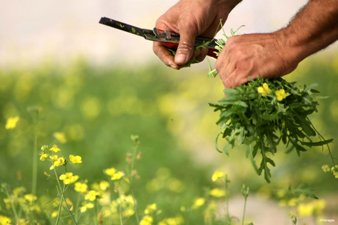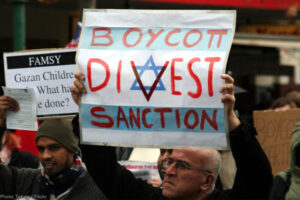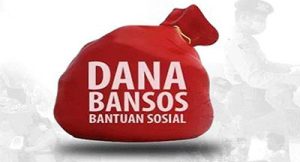Palestinian-farmer-300x200.jpg" alt="Thyme cultivation fuels Palestinian green gold rush (Photo: Memo)" width="300" height="200" /> Thyme cultivation fuels Palestinian green gold rush (Photo: Memo)
West Bank, 2 Dzulhijjah 1436/16 September 2015 (MINA) – Early every morning, Muayyad Said, a Palestinian farmer, gathers his tools and goes to his field to harvest thyme, the cultivation of which has dramatically expanded in the West Bank over the past five years.
Said is 35-years-old and lives in a village near Qalqilya, in the north of the West Bank.
Like many Palestinian farmers, he has not cultivated normal fruit and vegetables for nearly five years on his 5,000 square metre patch of land.
He turned to the cultivation of thyme due to the high-income it generates for him compared to other plants, and because it can be cultivated throughout the year. Middle East Monitor (MEMO) quoted by Mi’raj Islamic News Agency (MINA) as reporting.
Also Read: Israeli Occupation Army Deploys Two Additional Battalions to West Bank
“Our lands were full of citrus and vegetables in the past, but five years ago we started to invest in cultivating thyme, which is more profitable and does not need the care and effort needed by vegetables,” he told the Anadolu Agency.
With a hammer in his hand, he whacks the branches of dry thyme that have been exposed to three days of sunlight. The leaves gently find their way to the ground.
“Planting thyme does not need that much effort as we only have to work a few days a month and it is profitable,” he said.
Thyme seedlings are generally cultivated in winter and, after two months, can be harvested right after being grown or after being left to dry. In either case, they are ultimately sold after being grinded.
Also Read: UNRWA Condemns Israel’s Plan to Forcibly Displace Palestinians to Rafah
According to farmers, 2.5 tonnes of thyme can be produced per 1,000 square metres of irrigated land, and 1.5 tonnes in areas that rely solely on natural rainwater.
Thyme is considered one of the key elements of traditional Palestinian breakfasts, which usually consist of bread, thyme and olive oil.
It is also used for medical purposes, in addition to being a symbol of Palestinian culture and history.
“Cultivating vegetables needs daily work and greater costs,” Said added. “Its profits are much less than investing in thyme.”
Also Read: Trump Surprised by Israeli Soldier’s Praise for Hamas
In terms of numbers, Said clarified that the annual income of 1,000 square metres of thyme is 30-40,000 Israeli shekels ($8-11,000), whereas the same amount of tomatoes does not exceed a quarter of this amount.
At another farm in the same town, Aysar Ahmed, 42, and five of his brothers are also harvesting thyme because of its higher rates of profit.
“The cultivation of thyme does not need too much effort,” Ahmed told the Anadolu Agency. “All you need are small amounts of fertilisers and pesticides in order to get large harvest.”
According to Said Al-Laham, director of the Department of Vegetables in the Palestinian Ministry of Agriculture, thyme-cultivated land did not exceed 500,000 square metres in the West Bank before 2010.
Also Read: Suicide Cases Among Israeli Soldiers Surge Amid Gaza War Trauma
“Thyme-cultivated lands have expanded and reached nearly 10 million square metres due to the increasing demand by foreign companies for this plant, which is marketed in Europe and the United States and sold as a food and medical component,” he said.
Abdullah Omar said that five years ago none of his hometown or neighbouring farmers were planting thyme.
Omar, 33, owns a farm with 50 employees; he and his family have around 120,000 square metres of land planted with thyme.
“We were cultivating oranges and vegetables, but these days the only cultivated plant in our fields is thyme,” he said.
Also Read: Israel Launches Armed Settler Police Unit in Occupied West Bank
“The cultivation of thyme started five years ago and has expanded ever since,” he said. “This plant is exported to Arab and foreign countries for industrial and medical purposes.”
“The rate of unemployment in our region is zero, and here I have a shortage of workers,” he added. (T/P002/R03)
Mi’raj Islamic News Agency (MINA)
Also Read: 10 Children Lose Limbs in Two Israeli Attacks on Day 644 of Gaza Assault


































 Mina Indonesia
Mina Indonesia Mina Arabic
Mina Arabic